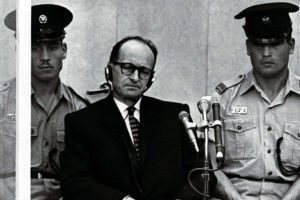103. Natural Law Theory and Social Justice, Part 2
In part 1 of this series, I laid out the basics of natural law theory. Now let’s turn to three examples of how the theory has been used to combat social injustice.
Throughout history there are examples of people appealing to a deeper, moral order in their efforts to criticize the unjust laws and practices of their time. Civil laws are made by particular people in particular societies. But such laws can change or completely disappear as those societies change. Not so with natural laws: they exist independent of opinions and provide an objective, universal, and intelligible ground for morality. Thus it is no surprise to find that natural laws have been used for radical social critique.
For example, Charles Henry Langston (1817–1892), an American abolitionist and political activist, was one of a group of men who freed runaway slave John Price in 1858. The Underground Railroad hid Price in Oberlin and helped transport him to freedom in Canada. Eventually, Langston was tried and convicted. But he thought he stood on a moral law deeper than the prevailing civil laws. Consider his words at the Cuyahoga Courthouse, May 1859:
“I stand here to say that I will do all I can, for any man thus seized and help, though the inevitable penalty of six months imprisonment and one thousand dollars fine for each offense hangs over me! We have a common humanity.”
Here we see a common theme of natural law theory at work, namely, our common humanity. This theme played a crucial role in the decisive Nuremberg Trials as well. Barbara MacKinnon explains:
“The Nuremberg trials were trials of Nazi war criminals held in Nuremberg, Germany, from 1945 to 1949. There were thirteen trials in all. In the first trial, Nazi leaders were found guilty of violating international law by starting an aggressive war…in other trials, defendants were accused of committing atrocities against civilians…The defense contended that the military personnel, judges, and doctors were only following orders from their superiors in the Nazi regime. However, the prosecution argued successfully that that even if the experimentation did not violate the defendant’s own laws, they were still “crimes against humanity.” The idea was that a law more basic than civil laws exists—a moral law—and these doctors and others should have known what this basic moral law required.”
Natural theory also helped convict Nazi war criminal Adolf Eichmann of crimes against humanity. As a result, he received the death penalty and was hanged on June 1, 1962. Without a philosophical account of natural rights, rights that are universal unlike civil rights, it appeared Eichmann would go free. After all, what he did was legal under the Third Reich and, once the war ended, he couldn’t be tried in a court of another country. But again, what is legal is not necessarily moral; and the prosecution was able to employ natural law theory to refute the clever lawyers who defended a Nazi who ordered the death of six million Jews.
And Martin Luther King, Jr.’s “Letter from a Birmingham Jail” (April 16, 1963) links natural law to our shared status as persons:
“Since we so diligently urge people to obey the Supreme Court’s decision of 1954 outlawing segregation in the public schools, at first glance it may seem rather paradoxical for us consciously to break laws. One may well ask: “How can you advocate breaking some laws and obeying others?” The answer lies in the fact that there are two types of laws: just and unjust. I would be the first to advocate obeying just laws. One has not only a legal but a moral responsibility to obey just laws. Conversely, one has a moral responsibility to disobey unjust laws. I would agree with St. Augustine that “an unjust law is no law at all.” Now, what is the difference between the two? How does one determine whether a law is just or unjust? A just law is a man made code that squares with the moral law or the law of God. An unjust law is a code that is out of harmony with the moral law. To put it in the terms of St. Thomas Aquinas: An unjust law is a human law that is not rooted in eternal law and natural law. Any law that uplifts human personality is just. Any law that degrades human personality is unjust. All segregation statutes are unjust because segregation distorts the soul and damages the personality. It gives the segregator a false sense of superiority and the segregated a false sense of inferiority. Segregation, to use the terminology of the Jewish philosopher Martin Buber, substitutes an “I it” relationship for an “I thou” relationship and ends up relegating persons to the status of things. Hence segregation is not only politically, economically and sociologically unsound, it is morally wrong and sinful.”
In all these examples we see attempts to counter perceived social injustice by appealing to a natural law that runs deeper than civil laws, a natural law that can be discerned by rationally investigating human nature or our common humanity. But King’s critique of segregation is particularly helpful in formulating a powerful argument that can used to combat all forms of social justice. So I will take a closer at his critique in the third and final part of this series here.


